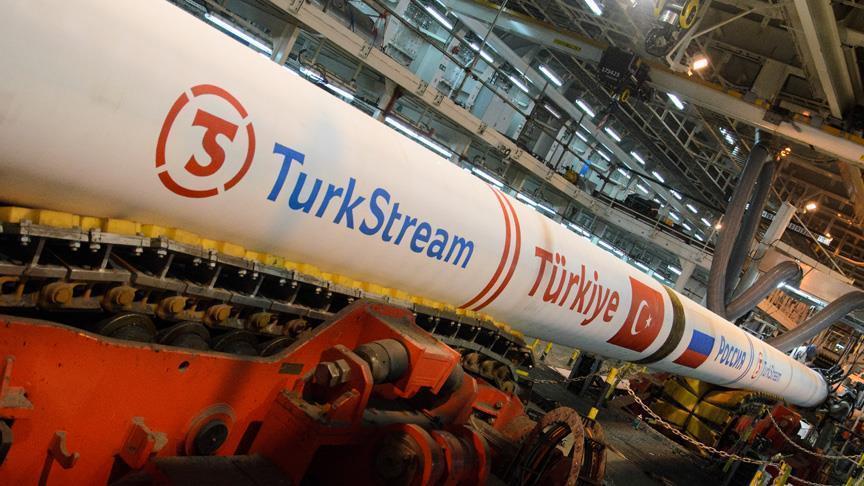The construction of two compressor stations for the Turk Stream gas pipeline began in Bulgaria, even though construction of the pipeline through the country itself hasn’t began due to litigation.
The Bulgarian leadership calls the pipeline Balkan Stream.
Bulgartransgaz announced that it had signed a contract for the construction of the compressor stations with DZZD FERROSTAAL BALKGAZ (which includes Ferrostaal Industrieanlagen GmbH, Glavbolgarstroy AD and Glavbolgarstroy International AD).
The pipeline would allow for the transfer of 12 billion cubic meters of Turkish gas to Europe. This project is the second phase of the gas pipeline construction and should be completed next year.
The construction of the stations will increase the pressure along the infrastructure route from the Turkish-Bulgarian to the Bulgarian-Serbian border, the Ministry of Energy reported.
“The participation of international companies guarantees the implementation of the project for the expansion of the gas transmission infrastructure to be realized within the set deadlines,” said Vladimir Malinov, Executive Director of Bulgartransgaz EAD, quoted by the Ministry’s press center.
The total value of the contract is approximately BGN 351 million without VAT, or approximately $200 million.
The Nova Provadia compressor station will be located in the area of the village of Vetrino and will be equipped with four gas turbochargers with a capacity of 10 MW each.
The Rasovo compressor station will be located on the land of the village of Rasovo, municipality Medkovets and will be equipped with three gas turbochargers with a capacity of 12 MW each.
The projected compressor units for both stations are the latest generation, manufactured by US company Solar Turbines, which is the industry leader. They will be fitted with low-emission combustion chambers that meet the highest environmental requirements, the ministry said in its statement.
“The signing of the contract brings us closer to the implementation of the renewed Energy Strategy of Bulgaria,” said the Minister of Energy of the country Temenuzhka Petkova, and the Executive Director of Bulgartransgaz Vladimir Malinov said.
However, this cannot be said about the construction of the gas pipeline itself – the continuation of the Turkish Stream in Bulgaria with a length of 474 kilometers. According to the initial plans, its construction should have come to an end.
Its construction is actually yet to begin. And this is unmentioned in the announcement of the construction of the compressor stations.
Another noteworthy thing is that Bulgartransgaz is apparently attempting to make a profit from a loan it plans to take out for the construction of Turk Stream.
Essentially, the company has presented made a public call for offers, which requests banks, registered in the EU, to provide a loan of at least EUR 30 million, and of up to EUR 50 million. And that is in order to reach EUR 150 million. If there aren’t enough offers, then Bulgartransgaz can increase the loaned amount by up to 50%.
As leverage, the Bulgarian gas operator will provide future deposits in USD in the amount of 102% the loaned amounts.
For this, Bulgartransgaz requests a loan interest rate actually lower than the interest for its deposit, so that it actually wins money on top of paying back the loan.
The director of Bulgartransgaz, Vladimir Malinov said that this was necessary to guarantee the construction of the pipeline which is supposed to start transmitting gas through Turkey into Europe from January 1st, 2020. Construction is yet to begin and it is still unlikely that the time left in 2019 is even remotely sufficient to complete it.
Bulgarian Energy Minister Temenuzhka Petkova said that there are on-going negotiations with the Arcad consortium to build the first 308 kilometers of the pipeline at a higher pace, so as not to be too far behind schedule.
In April the little-known Saudi consortium Arkad (Arkad and its joint company with ABB Arkad ABB) was recognized as the general contractor for the construction of a pipeline to the Bulgarian-Serbian border.
It proposed building a continuation of the Turkish Stream at the lowest price of EUR 1.1 billion in 615 days. The consortium failed to submit the documents on time. Bulgartransgaz replaced the Saudis with the Gas Development and Expansion in Bulgaria consortium, consisting of reputable Italian and German companies and a Luxembourg company affiliated with the Russian Pipe Metallurgical Company.
Arcad, however, challenged the decision of the Bulgarian gas operator in the Competition Protection Commission, and Gas Development and Expansion in Bulgaria responded by appealing to the Supreme Administrative Court.
It was supposed to start considering the case in October, but in September the Italian-German-Luxembourg consortium unexpectedly withdrew the appeal and the Saudi Arcad was declared the winner of the tender for the construction of the continuation of the Turkish Stream in Bulgaria. It pledged to build the first section of 308 kilometers in 250 days, and thus, the first deliveries of Russian gas through Bulgaria to Serbia and further to Hungary and Austria should begin no later than the middle of 2020, because January 1st appears unlikely.
MORE ON THE TOPIC:




